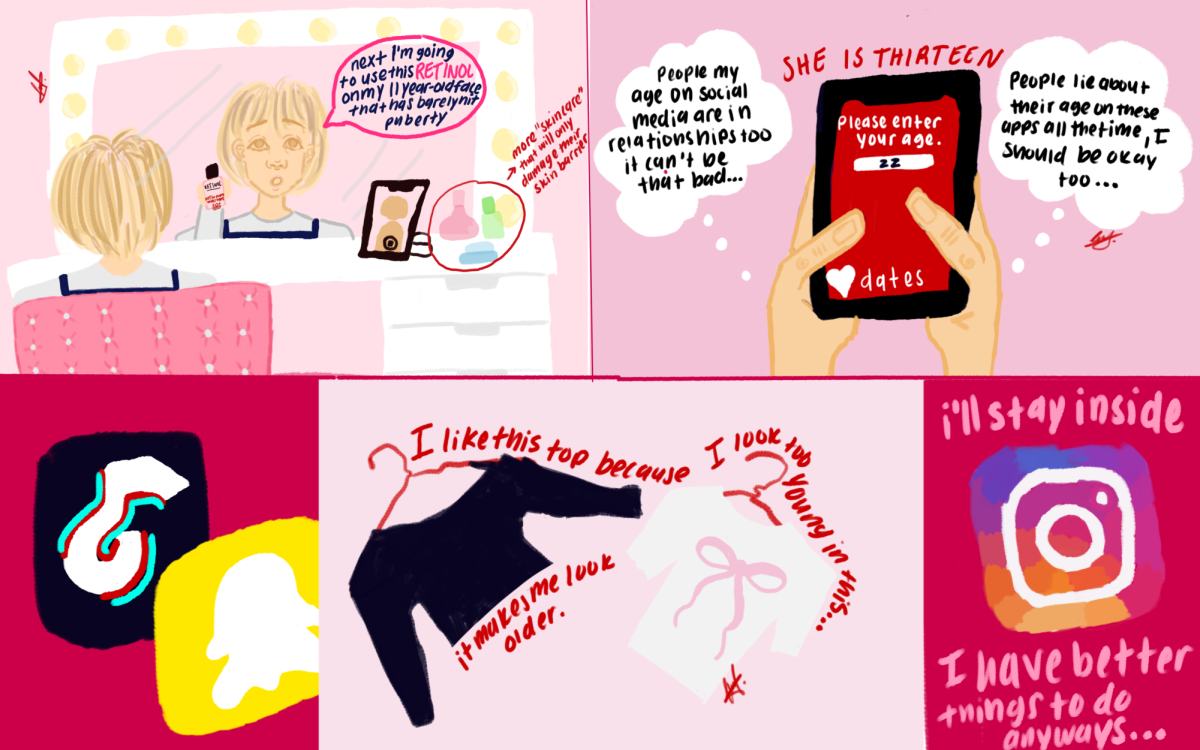
Every high school student knows someone who’s been on-again, off-again with a partner before. Sometimes, the back-and-forth lasts weeks. Other times, it can span the course of years. These breakups and reconciliations are always fraught with drama. They’ve been depicted in just about every form of media, from sitcoms to rom-coms to comic books. However, restarting a relationship soon after a breakup is almost always a bad idea.
This process, also called “relationship cycling,” involves a series of breakups and reconciliations between romantic partners. As it turns out, it’s incredibly common: 40 to 60 percent of teens/young adults have broken up with, then get back together with, the same partner according to a 2009 University of Texas at Austin study. Reasons for doing so vary. Many freshly split couples still have romantic feelings for each other, which can make them want to “make it work.” Others worry that their new ex was “the one,” and that they’re missing their chance with their soulmate. There’s also the desire to be in a relationship simply because it is familiar, and being alone is scary.
While these reasons are valid, it’s incredibly rare that partners who get back together after a breakup are actually happy in this new relationship. First and foremost, when a breakup occurs, particularly a non-mutual one, trust in the relationship is permanently damaged. After being dumped, it’s hard not to worry that your partner may not secretly be thinking of dumping you again.
This dynamic can cause a power imbalance: one partner may work extra hard to please the other, on the threat of being dumped once more. When that power imbalance is present, partners can become more vulnerable to guilt-tripping and manipulation, including performing sexual acts they may be uncomfortable with.
The opposite may also be true. When being begged by an ex to “take them back,” it’s easy to feel guilty enough to agree. That doesn’t mean that the relationship is actually worth continuing to pursue, or that it will magically become healthy.
Sure, there are certain situations where partners truly can reconcile after a break-up and reunite stronger than ever. However, there are two major factors you should consider when deciding whether or not to reunite. The first is, “Why did we break up in the first place?”
If a relationship ends due to external pressures that have been resolved, it may be worth pursuing again. Think strict parents who won’t let you date until you’re 16, a tough semester where you don’t have time to date or summer abroad with no communication. If you’re not in that situation anymore and you’re still interested in your ex (and they are still interested in you), giving a new relationship a shot could work out.
However, most relationships end for good reason. Generally, breakups are a culmination of a relationship that has been falling apart for a long time. Common reasons for breaking up include consistent arguing, cheating or some sort of basic incompatibility of preference, whether that is political, religious or romantic. Other relationships simply dissolve, as passion and attraction fade. When these fundamental issues are present, a few weeks apart isn’t going to fix them.
Calling off a long-term relationship forever can feel a lot like quitting. When it comes down to it, though, once a relationship has ended, staying apart is the best option for both partners. If you truly want your ex to still be in your life, the best path is to take some time apart, move on, and then try for a friendship. But if you get an “I still miss u…” text at 2 a.m. and you start itching to respond, turn off your phone and go back to sleep.










